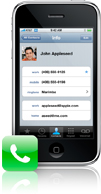 New research published in yesterday’s Proceedings of the National Acadamy of Sciences has dramatic implications for Americans and identity theft. Alessandro Acquisti is an Associate Professor of Information Technology and Public Policy at Heinz College of Carnegie Mellon. He has spent the better part of two years with his colleague Ralph Gross, looking at social security numbers as both identifier and authenticator, something we have all known was a bad combination. Professor Acquisti demonstrates just how bad of an idea it has been in the last twenty years. In that time there have been two significant policy changes that have made numbers extremely predictable based on two pieces of information:
New research published in yesterday’s Proceedings of the National Acadamy of Sciences has dramatic implications for Americans and identity theft. Alessandro Acquisti is an Associate Professor of Information Technology and Public Policy at Heinz College of Carnegie Mellon. He has spent the better part of two years with his colleague Ralph Gross, looking at social security numbers as both identifier and authenticator, something we have all known was a bad combination. Professor Acquisti demonstrates just how bad of an idea it has been in the last twenty years. In that time there have been two significant policy changes that have made numbers extremely predictable based on two pieces of information:
- birth city
- date of birth
The policy changes involve release of something known as the Death Master File (DMF), which was intended to prevent someone from expropriating a dead person’s identity, and the Enumeration at Birth (EAB) initiative, which has had the effect of allocating SSNs shortly after birth. These combined with the facts that SSNs have structure based on location, and that the less significant components are serialized in allocation, and it makes for a predictable SSN.
This gets worse. While it may be possible to fix this problem for future generations that use SSNs, either by randomizing all or lesser components, or by not filing applications upon birth, the millions of people who have assignments in this time period are in an extremely difficult spot, because the workaround is a change of number. This argues for a new form of identity that separates authentication and identity, but the effort to do so requires that the finance, education, and medical sectors (not to mention government) change their means of identifying individuals. This will be no easy task.
This research is a remarkable piece of work by Professor Acquisti and his colleagues.
 A recent
A recent  Today’s CNN
Today’s CNN  But for some fancy flying by Captain Chester “Sully” Sullenberger and his co-pilot Jeffrey Skiles, a menacing flock of geese would have managed to pull of the same feat that Osama Bin Laden’s gang of thugs took pains to plan and execute.
But for some fancy flying by Captain Chester “Sully” Sullenberger and his co-pilot Jeffrey Skiles, a menacing flock of geese would have managed to pull of the same feat that Osama Bin Laden’s gang of thugs took pains to plan and execute.  remember the miseries we have to go through at airports, the violations of our privacy that were made in our names, the destruction of our international reputation through the reckless disregard for human rights and international law, and now goose poop, which perhaps is best cleaned up with the editorial pages of the Wall Street Journal, as they have no better use.
remember the miseries we have to go through at airports, the violations of our privacy that were made in our names, the destruction of our international reputation through the reckless disregard for human rights and international law, and now goose poop, which perhaps is best cleaned up with the editorial pages of the Wall Street Journal, as they have no better use. Having staved it off for years I’ve finally joined
Having staved it off for years I’ve finally joined